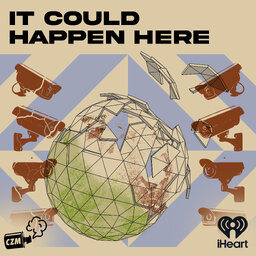Today we talk with Saint Andrew, an artist, writer and YouTuber, about the revolutionary potential of earnest utopian thinking.
Learn more about your ad-choices at https://www.iheartpodcastnetwork.com
In 1 playlist(s)
It Could Happen Here
It Could Happen Here started as an exploration of the possibility of a new civil war. Now a daily sh…Social links
Follow podcast
Recent clips

It Could Happen Here Weekly 219
3:21:13

Executive Disorder: Turning Point Halftime Show, Pam Bondi’s Epstein Hearing & ICE Detention of Liam Conejo Ramos
57:37

The Art of Petty with Prop & Amanda Nelson
46:16
 It Could Happen Here
It Could Happen Here